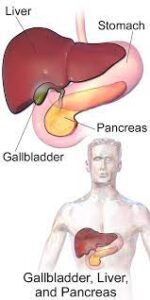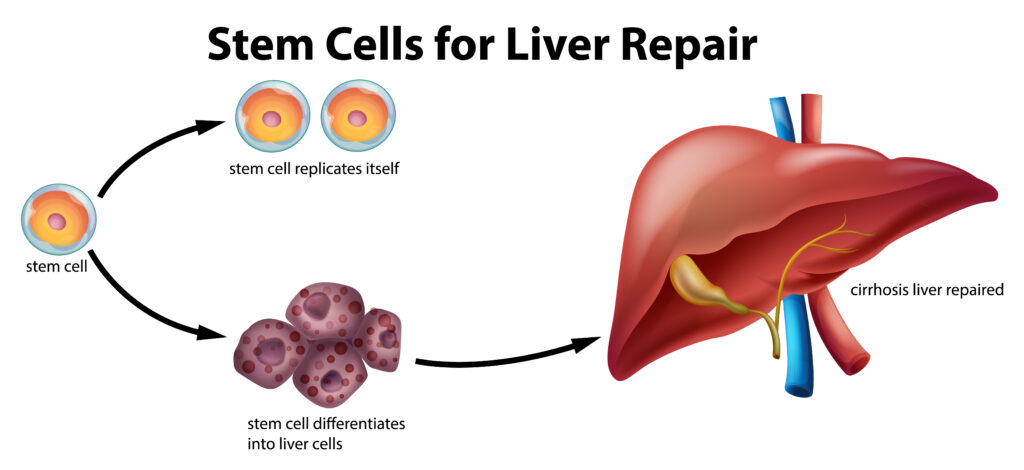Hepatitis remains a silent killer disease that many people are not yet aware of.
Most times, human beings neglect the need for a general medical check-up. Sometimes ignorance or rather a nonchalant attitude towards health makes people overlook good quality healthcare.
The importance of a regular health check cannot be over-emphasized.
A lot of people, along the journey of life, might discover that they tested positive for hepatitis but out of fear of the unknown, tend to ignore taking proper treatment and follow-up the health issue.
However, hepatitis is not a death sentence.
When detected early and treated properly, hepatitis C has over a 90percent cure rate. Hepatitis B can be cured too if detected early.
Join me as I give a detailed analysis of hepatitis and the possible treatment options for it.
WHAT IS HEPATITIS?
According to the world health organization (WHO), Hepatitis which is a silent killer disease, is an inflammation of the liver caused by various infectious viruses and non-infectious agents leading to a range of health problems, some of which can be fatal.
There are five main strains of the hepatitis virus, referred to as types A, B, C, D, and E. While they all cause liver disease, they differ in important ways including modes of transmission, the severity of the illness, and geographical distribution, and prevention methods.
In particular, types B and C lead to chronic disease in hundreds of millions of people, and together are the most common cause of liver cirrhosis, liver cancer, and viral hepatitis-related deaths. An estimated 354 million people worldwide live with hepatitis B or C, for most people, testing, and treatment remain beyond reach.

Hepatitis A
Hepatitis A is caused by the hepatitis A virus. This type of hepatitis is just an acute disease, it doesn’t lead to long-term infection. However, it is a highly contagious liver infection that spreads from contaminated food or water or contact with infected persons. Hepatitis A is preventable by vaccine. Hepatitis A resolves on its own within a few days or weeks.
Hepatitis B
According to the Center for Disease Control, Hepatitis B is a vaccine-preventable liver infection caused by the hepatitis B virus (HBV). Hepatitis B is spread when blood, semen, or other body fluids from a person infected with the virus enters the body of someone who is not infected.
It is mostly transmitted through sexual intercourse with an infected person. Hepatitis B can be transmitted from a pregnant woman to her unborn child. This type of hepatitis can also be spread by the use of contaminated sharp objects like needles, razor blades, etc.
For some people, Hepatitis B is a short-term illness but to some other people, it can be a long-term, chronic infection that can lead to serious, life-threatening diseases like liver cirrhosis, and liver cancer. Hepatitis B is indeed a silent killer disease.
Hepatitis C
This is a liver infection that is caused by the hepatitis C virus.
Most people with this type of hepatitis don’t have symptoms.
A very high percentage of those with this type of disease get a long-term infection. It can sometimes lead to liver cirrhosis.
According to the Centers for Disease Control and Prevention (CDC), approximately 2.4 million Americans are currently living with a chronic form of this infection.
Just like hepatitis B, Hepatitis C is equally transmitted through sexual intercourse with an infected person and body fluids or blood.
This hepatitis shouldn’t be under-estimated because it is a silent killer disease.
Hepatitis D
Hepatitis D, also known as the hepatitis delta virus, is an infection that causes the liver to become inflamed. This swelling can impair liver function and cause long-term liver problems, including liver scarring and cancer. The condition is caused by the hepatitis D virus (HDV).
This type of hepatitis is caused by the hepatitis D virus in conjunction with hepatitis B infection. It is a rare form of hepatitis.
Hepatitis E
A liver disease caused by the hepatitis E virus.
The hepatitis E virus is mainly transmitted through drinking water contaminated with fecal matter.
Symptoms of Hepatitis E may include jaundice, lack of appetite, and nausea. In rare cases, it may progress to acute liver failure.
Hepatitis E usually resolves on its own within four to six weeks.
Treatment focuses on supportive care, rehydration and rest.
SOME OTHER CAUSES OF HEPATITIS
There are some causes of hepatitis that are not infectious. These include Alcohol, misuse of medications, exposure to toxins, and autoimmune system disease.
Excess alcohol consumption can lead to liver damage.
SYMPTOMS OF HEPATITIS
Hepatitis can exhibit some symptoms like;
- Jaundice
- Fever
- Joint pain
- Diarrhea
- Nausea and vomiting
- Stomach pain
- Dark-colored urine
- Pale stool
DIAGNOSIS
Hepatitis can be diagnosed in several ways and these include;
History and physical examination: In this case, the doctor examines the person while taking the person’s history to determine any risk factors.
Liver function tests: Liver function tests, also known as liver chemistries, help determine the health of your liver by measuring the levels of proteins, liver enzymes, and bilirubin in your blood. They can also monitor the progression or treatment of an existing disease.
In this case, blood samples are used to determine how efficiently your liver works. High liver enzyme levels may indicate that your liver is stressed, damaged, or not functioning correctly.
Other blood tests: Doctors may use blood tests to check for any signs of autoimmune hepatitis.
Liver biopsy: A liver biopsy is a procedure that involves taking a sample of tissue from the liver through the skin with a needle. Ultrasound is used as a guide during this procedure.
Ultrasound: This test allows the doctor to take a proper look at the liver and nearby organs. An ultrasound scan can disclose cases like fluid in the abdomen, liver damage or enlargement, liver tumors, etc.
TREATMENT
Treatment options depend on the type of hepatitis you have and the severity of the disease condition.
As for hepatitis B, if it is an acute one, it resolves on its own within weeks or months but if it is a chronic infection, several antiviral medications — including entecavir (Baraclude), tenofovir (Viread), lamivudine (Epivir), adefovir (Hepsera) and telbivudine (Tyzeka) — can help fight the virus and slow its ability to damage your liver. These drugs are taken by mouth.
Talk to your doctor about which medication might be right for you.
Hepatitis C needs antiviral medications for both acute and chronic conditions to clear the virus entirely from the body. Researchers have made several advances to clear hepatitis C using direct-acting antiviral medications. It can be treated with the right drugs even though it will be a costly experience.
However, there is no treatment plan for acute hepatitis B.
The benefit of pharmaceutical care in the treatment of hepatitis cannot be over-emphasized.
Some medications like corticosteroids are very essential in their early treatment. There are other drugs like Azathioprine that are used for its treatment.
TIPS FOR PREVENTION
Hepatitis A vaccine helps prevent hepatitis A disease. It is a single-dose vaccine given at two shots at 6 months intervals.
The Hepatitis B vaccine is available for all age groups. The hepatitis B vaccine is recommended for all infants, all children or adolescents younger than 19 years of age who have not been vaccinated, all adults aged 19 through 59 years, and adults aged 60 years or older with risk factors for hepatitis B infection. Adults who are 60 years or older without known risk factors for hepatitis B may also receive the hepatitis B vaccine.

Pediatrician makes vaccination to a small boy
These vaccines diminish your risk of exposure to substances containing these viruses.
For the hepatitis viruses that are sexually transmitted, it is advisable for one to either abstain entirely from sex or remain faithful to a faithful partner. Get your partner screened for hepatitis before engaging in any form of sex. The use of barriers like condoms cannot be over-emphasized.
Then, as for the hepatitis viruses transmitted through contaminated foods and water, ensure proper sanitation, ensure that your food is properly made, and your source of drinking water is extensively purified.
You can avoid eating certain foods if you are not sure of their source.
Hepatitis virus can also be transmitted through body fluids so do not share sensitive items like razor blades, needles, toothbrushes, etc., with anybody.
COMPLICATIONS OF HEPATITIS
Chronic hepatitis B and C if not treated promptly and adequately, can become chronic which can lead to severe disease conditions like;
- Liver cirrhosis
- Chronic Liver disease
- Liver cancer
- Liver failure
LIVING WITH HEPATITIS
Once you are diagnosed with chronic hepatitis B, bear in mind that the virus remains in the liver for a lifetime.
So generally, lifestyle changes are of utmost importance. Ensure that you;
- Avoid consumption of alcohol
- Say No not smoking
- Take plenty of rest
- Do not do drugs
SUMMARY
The liver is a high-capacity organ in the human body. It hardly shows symptoms of hepatitis until it becomes chronic. Hepatitis is a silent killer. There is an urgent need to know your health status on hepatitis. Get vaccinated if negative, and get treated if tested positive.
Remember, hepatitis C can be cured if you get yourself to the hospital and strictly work with your doctor, ensuring that your medications are properly taken. Adequate follow-up is needed because hepatitis is a silent killer disease.
Ensure that you walk into a hospital today, and check for hepatitis. If positive, take your medications and strictly follow the doctor’s instructions.
Always stay hydrated, rest adequately, keep a healthy and clean environment, and eat a hygienically prepared balanced diet!















